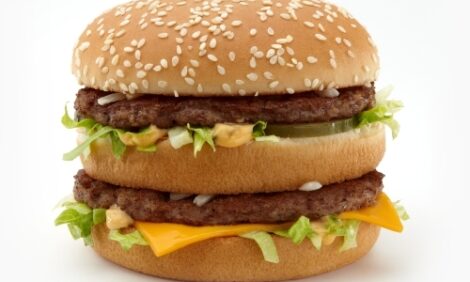



Dairy prices will not decrease in WTO period
VIETNAM - Contrary to all predictions, dairy prices will not go down, but increase. Experts said that a 10% increase in prices would be seen next month, reports VietNamNet Bridge.Experts said that prices would not go down in the WTO period, but there would be more choices for consumers.
In addition, Vietnamese dairy farmers are hoping that the Doha round on cutting subsidisations on agriculture will be successful, as it would bring more opportunities to them.
Prices will stay firm
Under its WTO commitments, Vietnam will cut the tax rates on finished dairy products by 5% in the next five years, while the tax rates on other products will remain high, at 25%.
Regarding powdered milk, Vietnam now has to import 80% of the total powder milk needed for local production. Though the tax rate will decrease in two years, the decrease will be small, by only 2%, to 18%.
Dairy products traders said that Vietnam had to cut the tariff to 5% under the framework of the ASEAN/AFTA in 2005, and since then, many big dairy producers have come to Vietnam. However, dairy prices have not decreased yet despite of the appearance of many big producers in the domestic market.
Explaining this, Mai Kieu Lien, Director General of Vinamilk (Vietnam Dairy Joint Stock Company), said that 80% of the material milk was sourced from imports and the prices of imports would continue to increase in the near future.
“Foreign-made dairy products will not overflow into Vietnam in anticipation of the tariff cut, but more and more foreign investors will come to Vietnam to set up workshops, which will lead to fiercer competition among dairy producers,” said Trinh Thi Le, Director General of Nutifood.
Ms Le said that the dairy consumption level of Vietnamese people was still low compared to other peoples in the region. Currently, Vietnamese people consume on average 10 litres a year, while the figure is 30 litres in Thailand, 50-60 litres in Malaysia and China, and 100 litres in the Republic of Korea.
Dairy farmers put high hopes on Doha round
In EU member countries, dairy farmers receive $2.7/milk cow/day in subsidisation; in the US, dairy farmers received $3.1bil in subsidies in the 1995-2004 period.
Japan is leading among the countries that apply the subsidisation mechanism on agriculture and dairy farming with the subsidisation level of $8/milk cow/day. In 2004 alone, the country allocated its husbandry sector a huge sum of money, at $4.3bil. With the subsidisation, farmers are assured of making profit though they sell fresh milk at low prices.
In the next five years, while the state can continue to protect local dairy farming, there will be no big difficulties for husbandry. However, the situation will be different in 2012, when the tariff is removed.
Experts said that the difficulties Vietnamese farmers will have to face after 2012 will be eased if other countries reduce the subsidisation levels they give to their farmers.
Ms Lien from Vinamilk said that if the Doha round was successful, Vietnamese dairy farmers would have the chance to develop husbandry and make profit even if the tariff was removed.
“Once the subsidisation mechanism is removed, dairy prices will go to actual price levels, which will be higher than the prices applied now. By that time, the prices of locally supplied fresh milk will be higher, which will benefit local farmers,” Ms Lien said.
TheCattleSite News Desk


